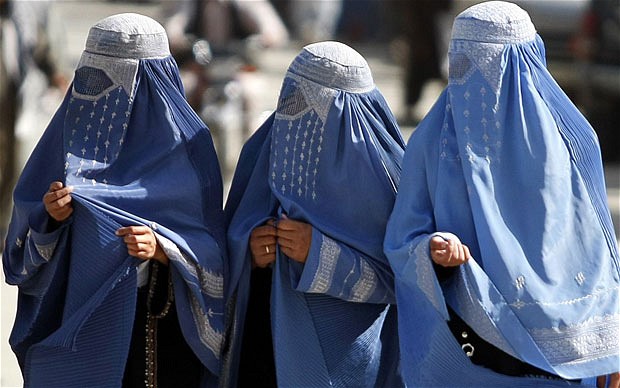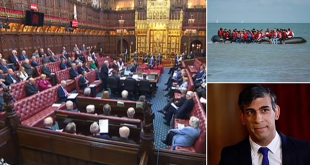By M. Nadeem Alizai: Customs are changing continuously and with dramatic speed in Afghanistan. The changes are mostly negative. These negative changes are earning bad image for the nation. The changes have resulted in serious problems for the government as well. Violence against women and children is byproduct of these variations. Prominent in all is violence against women. Violence against women is not an old problem, but it emerged to the surface as a result of over three decades of conflicts.
Though, rights activists think that the country is becoming a godforsaken land for women, but in the pre-wars era women enjoyed their rights and had considerable participation in the administration and respect in society. Unfortunately, now their rights are violated frequently and they are tortured, sold and murdered—early and forced marriages are no exception.
What is more upsetting is the cold-shoulder response of the government. Despite the fact that we have a democratic government in the country, still violation of human rights is an order of the day particularly against women because the culprits roaming in streets with no fear. They enjoy a kind of immunity.
The data about violence against women draws a horrifying picture.
According to a report of the Independent Human Rights Commission of Afghanistan (AIHRC), 4,873 cases of violence against women were registered in 2014. As many as 6,611 cases of violence of women were reported in 2013 and 5,701 in 2012. Fresh report of the AIHRC still to be released, but the available figures show a slight drop due to awareness about women’s rights. However, a long road is still ahead to eliminate violence against women. Most of the violence cases were about physical violence, especially torture. Out of the total registered cases, 1,268 were related to physical violence—30.1 percent of the total cases.
At least 412 cases were related to sexual abuse, and 1,482 cases were related to verbal and psychological violence. Looking at the data it is clear that physical violence is common in the country, because 87 cases were related to injuries, 38 others to forced labor, and 19 cases were about killing of women. Thirteen cases were about setting women on fire. In 11 cases of violence against women, one or more body parts of the victims were chopped. In 2014, 92 cases of honor killings were reported. A total of 162 women lost their lives in the same year due to rampant violence and the culture of impunity. Between 2011 and 2013, 243 cases of honor killings were reported. Most of the honor killings cases in 2013 were registered in Herat, Paktia and Nangarhar provinces. Herat is on the top of list when it comes to honor killing as 44 cases out of 92 were reported in the western province in 2014, followed by Balkh, Kandahar, Paktia, Nangarhar, Faryab, Helmand, Kunduz and Uruzgan provinces.
Looking at the ground situation, it is clear that lack of awareness about women’s rights is not the only issue but actually there are gray areas in our judicial system. There is no specific law to eliminate violence against women. No doubt that absence of a particular law goads violence against girls and women, because police seldom register case of honor killing or violence because they term it “a family dispute”. Even if the culprit is arrested he is freed by the courts because the Afghan parliament rejected the Law on the Elimination of Violence against Women (EVAW Law). Approval of the law was important for the courts to apply it in pending decisions and provide justice to women and girls.
Talking to Afghanistan Times about rejection of the EVAW Law, member of the legislative commission of the Wolesi Jirga, Syed Muhammad Hassan Sharifi Balkhabi, said the law became victim of politics, though, it contained some controversial articles.
“The law was not approved due to political and legal reasons. Some foreigners were backing the law which created political and religious problems. Involvement of foreigners annoyed some lawmakers as well,” he underlined.
He added that there were some articles which were controversial and needed explanation. Regarding fate of the law, the legislator said that if required changes were brought in the law the parliament would have no problem. “Wolesi Jirga will approve the law if our recommendations were taken seriously. We are not against women’s rights because Islam stresses on protection of women’s rights and encourages Muslims to respect women. The legislative commission is ready to support the law if it was send again,” Balkhabi said.
Replying to a query about role of shelter houses, he said that shelter houses do not resolve problems but creating family disputes. He said that shelter houses have many problems, adding that violence against women is a social issue that needs comprehensive and collective efforts to overcome and protect rights of girls and women.
Like some parliamentarians, analysts also believe that the law has been used for politics by the leaders to garner support and get more votes in the 2014 presidential election.
They say that if the leaders were serious about elimination of violence against women then they would have brought the necessary changes in the law and forwarded it to the Wolesi Jirga for debate and approval.
Rubaba Parwani, a member of the women’s commission of the Wolesi Jirga, said that a law is send to 18 committees of the Wolesi Jirga for review and suggestions. “The law later comes under discussion in the chiefs of the committees to build consensus. It is somehow a lengthy procedure,” she said when asked how much time the law would take to be approved.
Responding to a question about rejection of the law, she also said that the law was politicized.
Five articles of the law were controversial. No one wanted to reject the law but sought changes because the five articles were against the Sharia, she said.
Hinting towards a controversial article, she said that shelter houses should be in the country but under control of the Afghan government.
It is said that some foreigners were trying to bring shelter houses under their control under the pretext of eliminating violence against women. Whatever is the reason behind the rejection but the government could not ignore the issue. It has to take steps and send the law once again to the parliament after bringing the recommended changes.
 Afghanistan Times
Afghanistan Times




